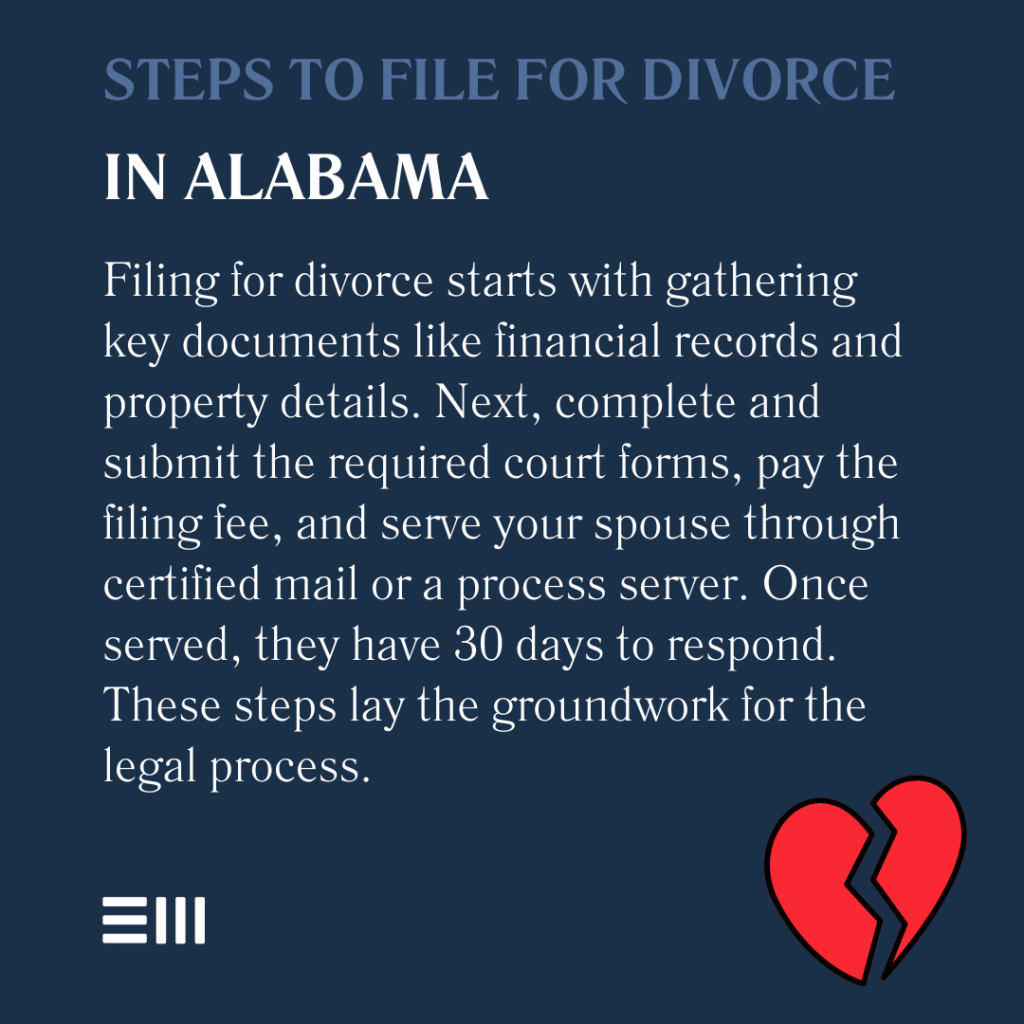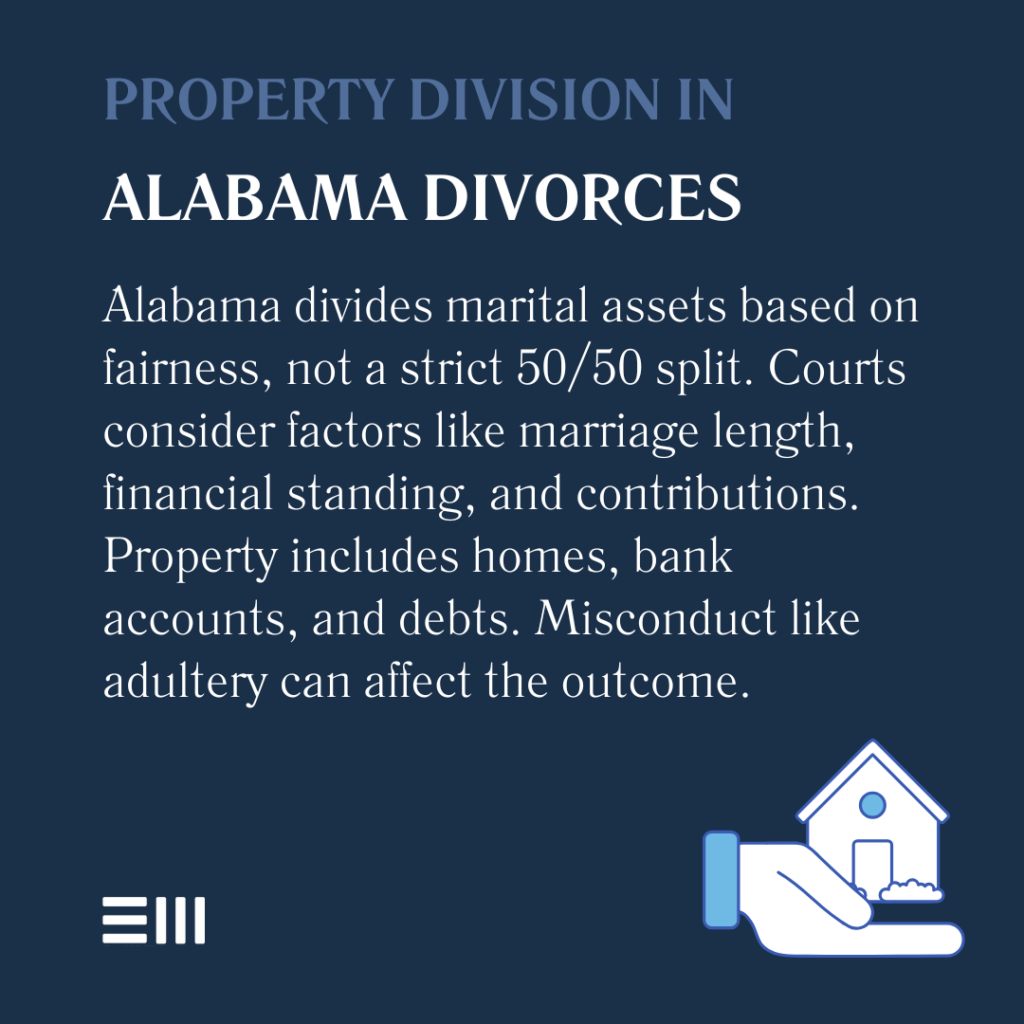
Behind every divorce lies a unique story of change, challenge, and the courage to start anew.
While ending a marriage marks one of life’s most significant transitions, understanding Alabama’s divorce process can transform an overwhelming journey into clear, actionable steps forward.
Whether you’re just beginning to consider divorce or have already made your decision, knowing what lies ahead helps you move forward with confidence and purpose.
Understanding Residency Requirements and Grounds for Divorce
Before beginning the divorce process, Alabama residents must meet specific legal requirements that establish their eligibility to file within the state.
These foundational criteria ensure proper jurisdiction and legal standing for your case.
To file for divorce in Alabama, either you or your spouse must have been a resident of the state for at least six months before filing.
Additionally, you must identify the legal grounds for your divorce, which can be either fault-based or no-fault. Alabama recognizes both options, giving couples flexibility in how they approach their separation.
The most common grounds for divorce in Alabama include:
- Incompatibility of temperament, which means the couple can no longer live together harmoniously;
- Irretrievable breakdown of the marriage, indicating there’s no reasonable possibility of reconciliation;
- Voluntary abandonment from either spouse for one year prior to filing
- Adultery during the marriage;
- Imprisonment for two years with a sentence of seven years or longer;
- Drug addiction or habitual drunkenness after marriage;
- Physical abuse or domestic violence; and
- Mental incapacity at the time of marriage.
Understanding these grounds helps you determine the most appropriate path forward based on your specific situation. Your choice of grounds can affect various aspects of your divorce, from the timeline to potential outcomes.
Steps to File for Divorce in Alabama
The divorce filing process in Alabama follows a structured sequence that ensures all legal requirements are met, and both parties’ rights are protected.
Understanding these steps helps you navigate the process more effectively.
Gather Required Documentation
- Marriage certificate;
- Property ownership documents;
- Financial statements and tax returns;
- Bank account statements;
- Vehicle registration and insurance information;
- Child-related documents (if applicable); and
- Evidence supporting your grounds for divorce (if filing fault-based).
Complete Required Forms
- Complaint for Divorce;
- Summons;
- Certificate of Divorce;
- Child Support Information Sheet (if children are involved);
- Standing Pre-Trial Order; and
- Testimony of Plaintiff.
File Documents with the Court
- Submit completed forms to the circuit court in your county;
- Pay filing fees (approximately $200-400); and
- Request fee waiver if needed through Affidavit of Substantial Hardship.
Serve Your Spouse
- Choose service method (certified mail, sheriff’s department, or private process server);
- Ensure proper documentation of service; and
- Wait for spouse’s response (30 days from service date).
After completing these initial steps, you’ll need to follow the court’s specific procedures for moving your case forward. These procedures vary by county and circumstances.

Property Division and Financial Considerations
Alabama follows an equitable distribution approach to dividing marital property, which aims for fairness rather than strict equality.
This nuanced system requires careful consideration of various factors that influence asset division.
Key factors affecting property division include:
- Length of the marriage;
- Each spouse’s economic circumstances;
- Contributions to the marriage (including homemaking);
- Future earning potential of each spouse;
- Tax consequences of property division;
- Presence of separate property; and
- Conduct of parties during marriage (in fault-based cases).
Financial assets and debts that typically require division include:
- Marital home and other real estate;
- Retirement accounts and pensions;
- Business interests;
- Investment portfolios;
- Joint bank accounts;
- Credit card debt;
- Vehicle loans; and
- Mortgages.
Understanding these considerations helps you prepare for negotiations and ensure a fair settlement. Each case’s unique circumstances will influence the final distribution of assets and debts.

Child Custody and Support Considerations
When children are involved in an Alabama divorce, Alabama courts prioritize their best interests above all other factors.
The state encourages co-parenting arrangements that maintain strong relationships with both parents while ensuring children’s needs are met.
Key factors in child custody determinations include:
- Children’s age and emotional needs;
- Each parent’s ability to provide care;
- Children’s relationship with each parent;
- Stability of each parent’s home environment;
- Children’s ties to school and community;
- Parents’ willingness to support relationship with other parent;
- Any history of domestic violence or substance abuse; and
- Children’s preferences (if age-appropriate).
Child support calculations consider:
- Both parents’ gross income;
- Number of children;
- Healthcare costs;
- Childcare expenses;
- Education expenses;
- Special needs considerations; and
- Existing child support obligations.
These factors work together to create a comprehensive parenting plan that serves children’s best interests while being practical for both parents to implement.
Frequently Asked Questions About Divorce in Alabama
Understanding the complexities of divorce leads to many questions.
Here are answers to some of the most common inquiries about divorcing in Alabama.
How Long Does a Divorce Take in Alabama?
The timeline for divorce in Alabama varies significantly based on circumstances. Uncontested divorces can be completed in as little as 30 days after filing, while contested divorces may take several months to over a year.
What Is an Uncontested Divorce?
An uncontested divorce occurs when both parties agree on all terms, including property division, child custody, and support arrangements. This streamlined process typically costs less and concludes faster than contested divorces.
Can I Get a Divorce Without a Lawyer?
While possible, self-representation is generally recommended only for uncontested divorces with simple asset division and no children involved. Complex cases benefit from professional legal guidance.
How Much Does Divorce Cost in Alabama?
Filing fees range from $200-400, depending on your county. Additional costs vary based on complexity, whether you hire an attorney, and if experts are needed for asset valuation or custody evaluation.
Do Both Spouses Need to Live in Alabama?
Only one spouse needs to meet the six-month residency requirement. The non-resident spouse can participate in the divorce process from another state.
What if My Spouse Doesn’t Want a Divorce?
Alabama allows for no-fault divorce, meaning you can proceed even if your spouse objects. However, the process may take longer and require court intervention for disputed issues.
Take the Next Step Toward Your Future
Life’s paths sometimes lead to unexpected turns, and divorce, while challenging, can open the door to new beginnings.
With over 25 years of experience guiding Alabama residents through divorce proceedings, our team at Baxley Maniscalco stands ready to help you navigate this transition with confidence and clarity.
Contact us today for a confidential consultation. Together, we’ll create a strategy that protects your interests and helps you move forward with purpose. Begin your journey toward a new chapter in life.
Can't find what you're looking for? Search our site below.










